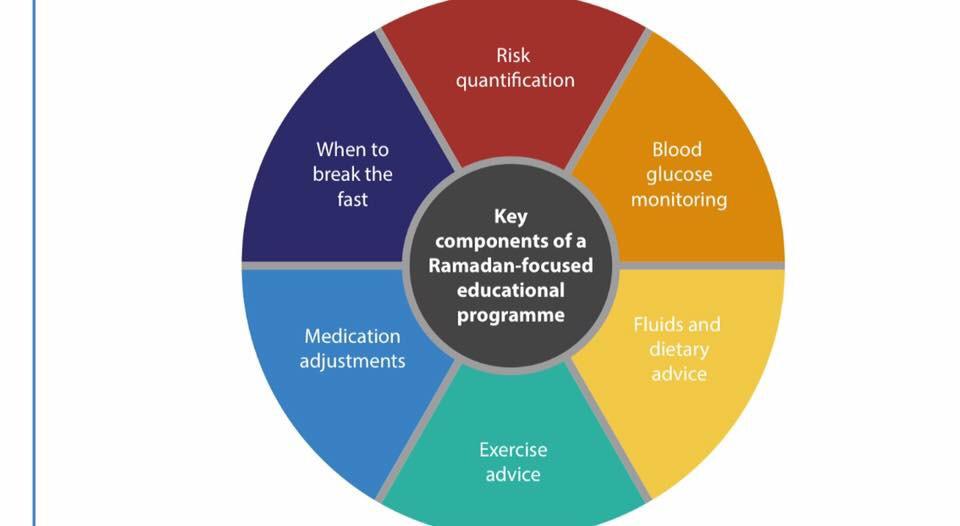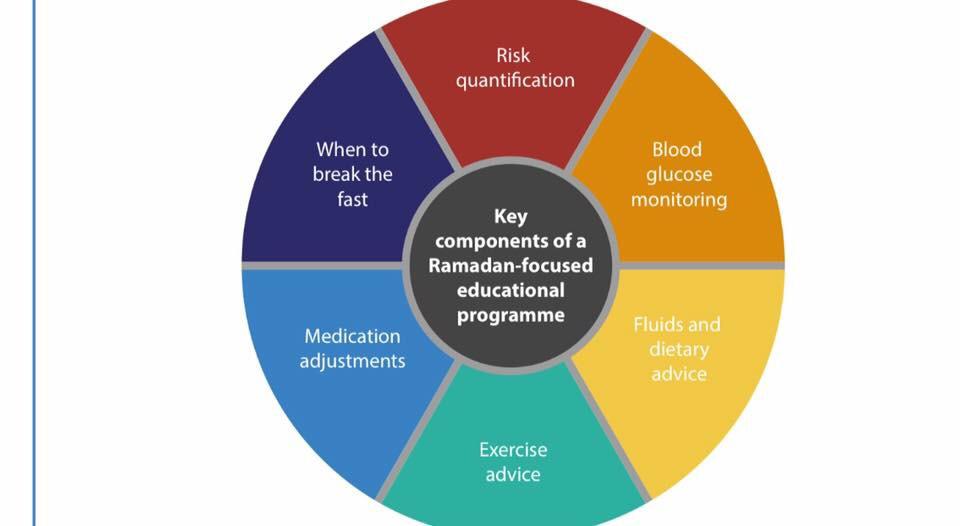
People with diabetes need to assess health risks before they embark on any kind of fasting schedules. This is specially relevant for the diabetic population fasting during the holy month of Ramzan.
Major risks associated with #fasting in patients with diabetes:
– Hypoglycemia
– Hyperglycemia
– Diabetic Ketoacidosis
– Dehydration and Thrombosis
Risk quantification:
Very high-risk patients include those with poorly controlled type 1 diabetes, advanced renal disease, cognitive dysfunction, or recent history of hypo/hyperglycemic emergencies.
High-risk patients include those with poorly controlled type 2 diabetes or who are on multiple daily injections of insulin.
Moderate/low-risk patients are those with well-controlled type 2 diabetes who are on oral agents and/or basal insulin therapy.
Those who wish to fast should prepare by undergoing a medical assessment and engaging in a structured education program to undertake the fast as safely as possible.
Management:
Individualisation: Ask to your health expert to plan a diet/exercise regime that fits within your schedule based on your current blood parameters.
Frequent self monitoring of glucose is crucial, even before/after exercise.
Diet:
Eating large amounts of foods rich in carbohydrates and fats should be avoided.
Those following a low carbohydrate plan, ingestion of fibrous carbohydrates may be advisable at the predawn meal (Suhoor). A three meal pattern can be followed during the non fasting hours. If the patient is already well adapted on a very low carbohydrate plan (minimum 8 weeks on intermittent fasting), the plan can be modified very easily to fit into fasting/non fasting hours by a qualified dietitian. Fasting and feasting (carbohydrates) can cause sugar levels to be thrown out of range.
It is also recommended that fluid intake be increased during non fasting hours.
Break the fast if: Hypoglycemia (blood glucose of <60 mg/dl) occurs because their blood glucose may drop further if they delay treatment. The fast should also be broken if blood glucose reaches <70 mg/dl in the first few hours after the start of the fast, especially if insulin, or other medications are taken at predawn.
Exercise:
Normal levels of physical activity may be maintained. Physical activity may be modified in its intensity and timing, e.g., ∼2 h after breaking the fast to avoid the risk of hypoglycemia .
Medication:
Will need to be adjusted in line with the meal pattern and blood sugar.
The chart below highlights points to bear in mind. Speak to your health expert for further guidance.





